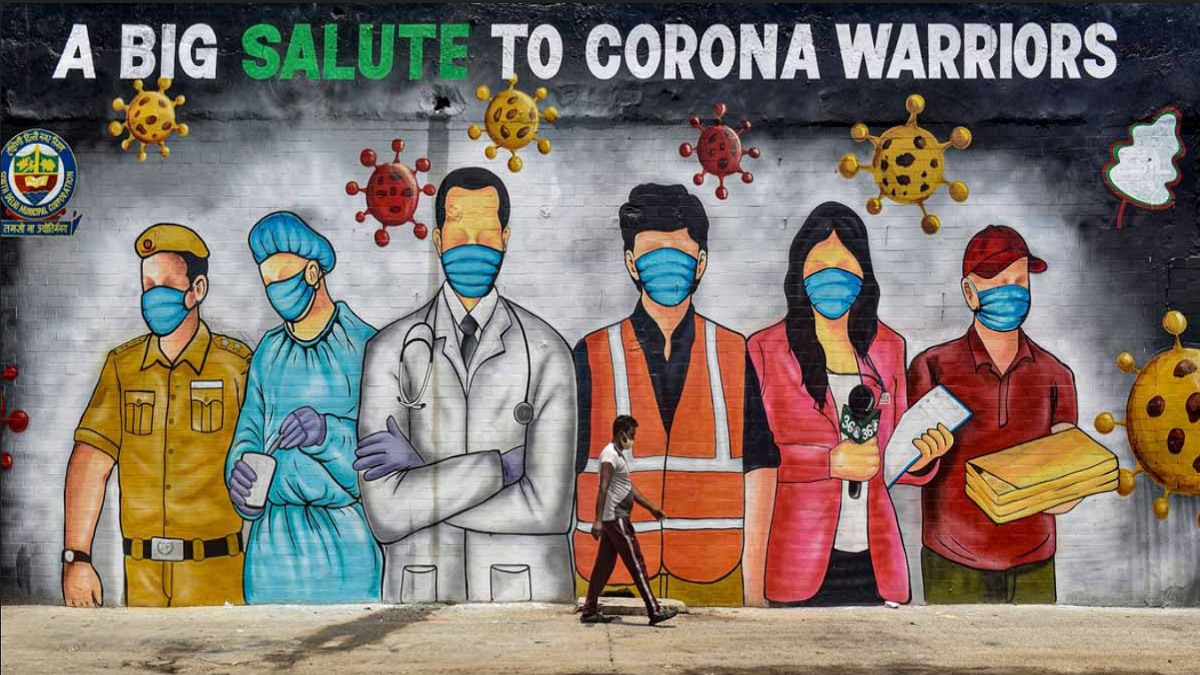
It is no secret that businesses went through a hard time during the unprecedented crisis of the Covid-19 pandemic last year. But as the vaccines bring hope in 2021 and companies begin to regain their balance, there is much to learn from what top industry leaders did to stay afloat during the lockdown and handle the challenge. With inspiring case studies outlining the importance of lessons like rising above self-interest during a global crisis and being open to failures, Disha Chhabra has put together Inflection Point, a book which has won high praise from several leading members of the corporate world and which can serve as a guiding light for the entrepreneurs of today and tomorrow.

In an interview with The Sunday Guardian, the author spoke of what motivated her to write the book and how the process unfolded. Excerpts:
Q: What led you to write Inflection Point during the pandemic?
A: In April 2020, I was perplexed by how the pandemic was changing our lives and habits. The way we lived, ate, worked, played was all altered. The resulting lockdowns of countries had brought national economies to a standstill. Salary and job cuts are happening throughout the world. ‘Lives versus livelihood’ was a constant debate. No one living in these times has experienced a crisis that can be remotely equated to this one, and things were still unfolding.
Covid-19 had also impacted every sphere of the corporate world. I was curious about the different challenges leaders across industries were facing, how they were thinking and organizing themselves through this. Which of these challenges were common and which of these were unique? Which leadership and business lessons from this crisis will be taught as crisis management case studies in B-schools? Which of these lessons will be permanent armours for future leaders? And does the learning differ depending on which side of the revenue curve a company finds itself? Does leadership need to be reactive? All of this led me to think about Inflection Point during this period.
Q: How was the process of interviewing such a varied group of leaders? Any favourite instances which stand out?
A: It was quite a humbling experience, to be honest. I had imagined it difficult to get a spot on their calendars. In times when your servers are crashing or your inventory is stuck, where would you find the motivation to talk to an author? But nevertheless, I found people very approachable. When they learnt that my intention behind writing the book was to capture their leadership lessons for a wider audience, they made themselves available for all my research. And the best part was that they were extremely candid in these conversations. I felt they shared their hearts out.
While all the interviews were extremely engaging and taught me so much, I would say interviewing Anil Rajput, Sr Vice President, Corporate Affairs, ITC, was very special. A person of his stature, with more than four decades of experience, was extremely down-to-earth, honest and willing to share anecdotes from this crisis and comparing it with the other crises that ITC has seen during its long existence.
Q: Were there any challenges you faced while working on this book?
A: A book is a long journey and there are times when one feels like giving up. I had to deal with my own challenges. While working from home, with no house help for a long time, finding the time to do this was sometimes a challenge. I spent many nights on the manuscript and mornings at work. What kept me going was a constant reminder of why I wanted people to read such a book. When I saw what potential the book had, in terms of leadership lessons for a lifetime, it kept me going.
Q: What are the biggest lessons that a reader can take away from the accounts in the book?
A: The leadership in this crisis was all about the human spirit and leading with compassion. As one of the leaders said, “When crises like these happen, one does not think of top and bottom lines.”
Q: Is there a particular business leader—whether a part of this book or not—who has been an inspiration for you, personally?
A: Leaders who inspire me personally are those who stand by their people, build businesses for the greater good and also have a passion for bringing social change through their work. Being a corporate professional for more than 14 years now, I have had the opportunity to meet many such leaders who became my mentors, idols and coaches. Some taught me the hard skills at work and others led by compassion. One learns so much through the journey of these individuals. In that sense, it is hard and unfair to pick one name.